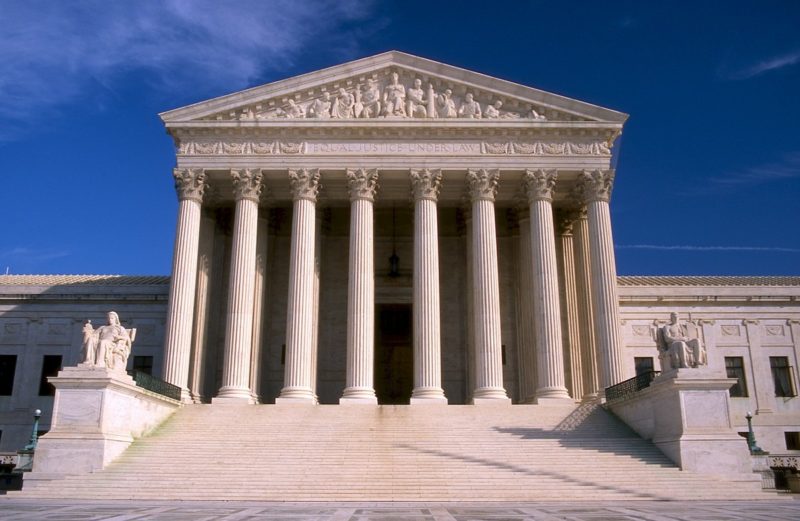 Richard Hausknecht was a New York City ob-gyn. His specialty was high-risk pregnancies. The New York Times asked him to comment about partial-birth abortions, during which a fully developed baby is partially extracted from the mother’s birth canal, the head left inside, the skull opened with a pair of scissors, the brains sucked out with a machine, and the skull crushed (abortionists say “collapsed”), before the body is finally disposed of. Dr. Hausknecht told the Times, “Any procedure at this stage is pretty gruesome. When I did second-trimester abortions, I did them late in the day, and when I’d get home, my wife would say, ‘You did one today, didn’t you?’ It would be all over my face.”
Richard Hausknecht was a New York City ob-gyn. His specialty was high-risk pregnancies. The New York Times asked him to comment about partial-birth abortions, during which a fully developed baby is partially extracted from the mother’s birth canal, the head left inside, the skull opened with a pair of scissors, the brains sucked out with a machine, and the skull crushed (abortionists say “collapsed”), before the body is finally disposed of. Dr. Hausknecht told the Times, “Any procedure at this stage is pretty gruesome. When I did second-trimester abortions, I did them late in the day, and when I’d get home, my wife would say, ‘You did one today, didn’t you?’ It would be all over my face.”
Richard Hausknecht eventually stopped doing late-term abortions.[i]
No matter how hard we try to deny or forget it, we live in a moral universe. Our story on this earth has a moral theme. C. S. Lewis put it succinctly:
First . . . human beings, all over the earth, have the curious idea that they ought to behave in a certain way, and cannot really get rid of it. Secondly . . . they do not in fact behave in that way. They know the Law of Nature; they break it.
These two facts are the foundation of all clear thinking about ourselves and the universe we live in.[ii]
Humans resist the moral universe
Yet clear thinking is in short supply when it comes to moral dimensions of life. In the abortion controversy, for instance, the person who defines the terms controls the debate, shapes the discussion, and influences public opinion and policy. Before the US House of Representatives voted in 2003 to outlaw partial- birth abortions (which the Times inaccurately labeled “late abortions”), supporters of abortion “rights” attempted to focus on issues such as constitutional rights, not the medical facts about what happens to the unborn infant. A memorandum from a pollster advised fellow campaigners: “Don’t talk about the health and condition of the fetus. Voters believe that this procedure, no matter what we call it, kills an infant.”[iii]
birth abortions (which the Times inaccurately labeled “late abortions”), supporters of abortion “rights” attempted to focus on issues such as constitutional rights, not the medical facts about what happens to the unborn infant. A memorandum from a pollster advised fellow campaigners: “Don’t talk about the health and condition of the fetus. Voters believe that this procedure, no matter what we call it, kills an infant.”[iii]
In the increasingly pagan US, to speak of a husband, a wife, and children as a “traditional family” is seen as oppressive. To insist on the time-honored definition of marriage is to be labeled a bigot or a homophobe. To refuse to participate in a same-sex “wedding” is to risk condemnation and even one’s livelihood. A generation ago, such arrangements weren’t even considered possible in polite society. Today, they’re demanded as a new “civil right.” As James R. White and Jeffry D. Niell stated,
This push is evidence of a tragic cultural transformation that has occurred in recent decades—one that pertains to the ethical, to the moral, and to that which is right and wrong. Yesterday’s outrage has become today’s standard. Today, homosexuality, which at one time was morally unthinkable, is on parade before us as normal, acceptable, and—in order to show its authoritative status—unquestionable.[iv]
God’s moral universe doesn’t flex for immoral laws
On June 26, 2015, the Supreme Court of the United States declared same-sex marriage the law of the land. In a stroke, millennia of historical precedent in virtually every society in the history of humankind was reversed.
The US Supreme Court establishes what is legal, but only God establishes what is moral. Further, the Bible says that God, who is the source of all morality, differs from the gods of the nations. And because He is different, we also must be different. God told Moses, “Speak to the entire assembly of Israel and say to them: ‘Be holy because I, the Lord your God, am holy’” (Lev. 19:2).
 The moral universe, created “good” by God, has a moral order. Morality is not a human, fallible construct. It is based on nothing less than the character of God. It is eternal, unchanging. More than this, morals establish what is good versus evil, right versus wrong, beautiful versus vulgar, just versus unjust, and civil versus barbaric. They affirm God’s original design for creation and call us to uphold that design. In light of the sweeping abandonment of a moral framework today, even among some evangelical Christians, we must never abandon the connection between morality and the law-giving God, who holds together the universe by the ordinances of creation. Therefore, we know that answers exist to the perennial questions “Is there right and wrong?” and “What is beautiful?”
The moral universe, created “good” by God, has a moral order. Morality is not a human, fallible construct. It is based on nothing less than the character of God. It is eternal, unchanging. More than this, morals establish what is good versus evil, right versus wrong, beautiful versus vulgar, just versus unjust, and civil versus barbaric. They affirm God’s original design for creation and call us to uphold that design. In light of the sweeping abandonment of a moral framework today, even among some evangelical Christians, we must never abandon the connection between morality and the law-giving God, who holds together the universe by the ordinances of creation. Therefore, we know that answers exist to the perennial questions “Is there right and wrong?” and “What is beautiful?”
When Christians pursue the vulgar and act unethically, the cause of truth, beauty, and goodness suffers. Religion without goodness is anemic at best. At worst, it is tyrannical. Christ calls us to rebel against the evil and vulgar and serve what is holy and beautiful: “Seek first his kingdom and his righteousness, and all these things will be given to you as well” (Matt. 6:33).
The moral universe is reflected in the Ten Commandments
God gave Moses the Ten Commandments, the Decalogue, not as a set of harsh prohibitions but as liberating rules that enable a people to diminish the tyranny of sin. God’s law teaches people how to live with one another in His world, how to restrain violence and fraud, how to know justice and to raise themselves above the level of predatory animals.[v]
Natural law, the law written into the hearts of people, constitutes the other way God has revealed His ways to us. Humans are morally programmed: we have an imbedded moral sense of right and wrong. Employing what we call “common sense,” man has a limited capacity to engage in moral reasoning and decision making.
Natural law is real. It is God’s general revelation of His moral order to all people. Critical to understanding natural law is human conscience. Conscience refers to our ability to pass moral judgments on ourselves. It involves both the awareness of right and wrong and the ability to apply this standard to specific situations. The conscience judges by the highest standard it knows.
Natural law has a long pedigree through history. Christian, Hindu, Chinese, and Greek literature all acknowledge its existence. Augustine, Aquinas, and Calvin all wrote about it. The great Christian theorist John Locke influenced the deist Thomas Jefferson to refer to natural law in the US Declaration of Independence.
The moral universe is echoed in many religious teachings
In The Abolition of Man, Lewis provides examples of natural law from ancient Chinese sources, Cicero, classical Egypt, ancient Greece, Babylon, and Hindu culture.[vi] He points to common themes from these varied cultures on duties to children, conceptions of justice, and veracity. Echoing Christ’s Golden Rule, the Hindus said, “Utter not a word by which anyone could be wounded.” The ancient Chinese urged, “Never do to others what you would not like them to do to you.” Cicero of Rome said, “Men were brought into existence for the sake of men that they might do one another good.”
Natural law is real, and it makes a difference. Because human beings are made in the image of God, and because the law has been written on our hearts, we are free and responsible beings who can make real moral choices.
– Darrow Miller
This DM&F Classic blog post is excerpted from the book Discipling Nations. For the entire text go here.
[i] Deborah Sontag, “Physicians Say ‘Partial Birth’ Is Just One Way,” New York Times, March 21, 1997.
[ii] C. S. Lewis, Mere Christianity (New York: Macmillan, 1943), 21.
[iii] Katharine Q. Seelye, “House Votes by Large Margin to Ban Late Abortions,” New York Times, March 21, 1997.
[iv] James R. White and Jeffrey D. Niell, “The Unthinkable Has Become Thinkable,” Issues, Etc., accessed December 21, 2015, http://www.mtio.com/articles/bissar97.htm.
[v] Russell Kirk, The Roots of American Order (Washington, DC: Regnery Gateway, 1991), 27.
[vi] C. S. Lewis, The Abolition of Man (New York: Macmillan, 1947), 95–121.






